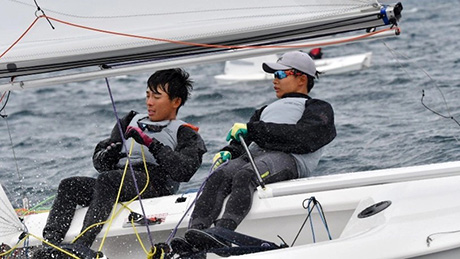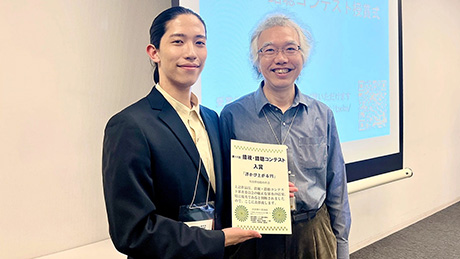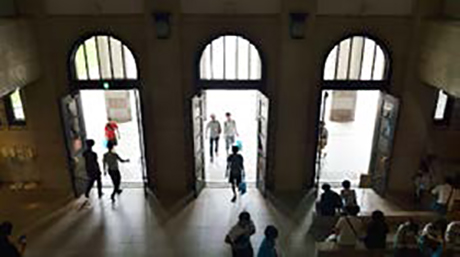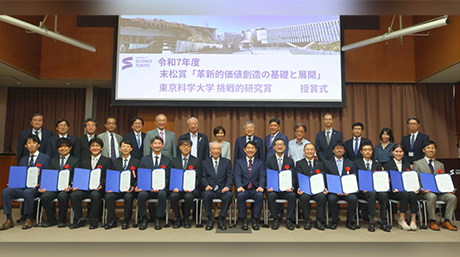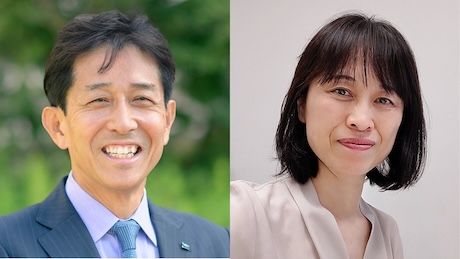Life Science and Technology News
Tokyo Tech student second in Stanford's health hackathon
Hajime Fujita, a 3rd-year Life Science and Technology student, and his team BEETLE achieved second place at Stanford's Health Hackathon health++ 2018, held on November 3 and 4.
health++, an annual contest held at Stanford University to tackle healthcare challenges, brings together engineers, entrepreneurs, designers, and healthcare professionals. This year, 19 teams aimed to tackle the issue of affordability in healthcare.
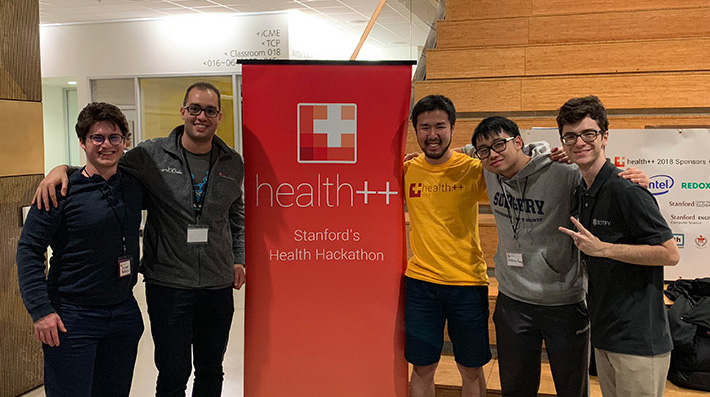
Team BEETLE: (from left) George Padeigis from McMaster University, Ahmed A. Metwally from Stanford University, Hajime Fujita from Tokyo Tech, Anthony Huang from the University of Toronto, and Marcelo H. Pillonetto from Military Institute of Engineering
Team BEETLE's project
Team BEETLE was born after a participant from Brazil raised the issue of drug-resistant bacteria at the beginning of the hackathon, and interested members volunteered to find a solution.
Multidrug-resistant bacteria have become a huge problem in recent years. Particularly those pathogenic to humans take a long time to identify, and appropriate measures cannot be taken promptly. Healthcare professionals often administer incorrect antibiotics to treat patients.
Fujita's team developed a device to extract and amplify multidrug-resistant DNA and constructed a system that measures the type of resistant bacteria quickly and easily.
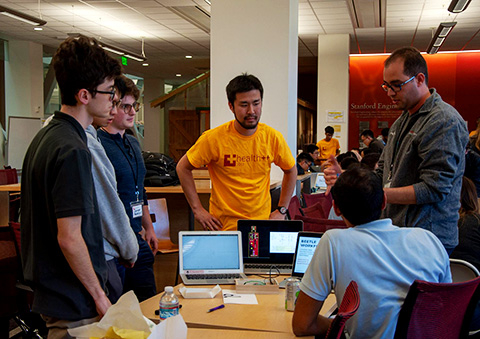
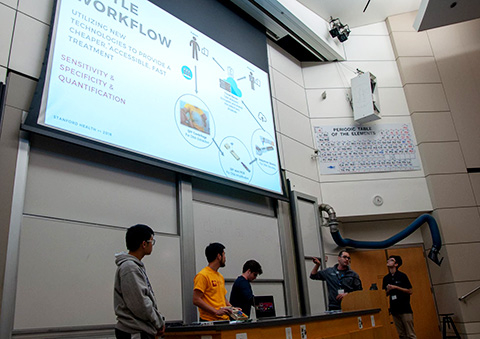
Fujita's central role
Team BEETLE consists of five students and researchers from Stanford University, Brazil's Military Institute of Engineering, the University of Toronto, McMaster University, and Tokyo Tech specializing in biology, computer science, and electrical engineering. Fujita, who participated as both a bioengineer and hardware engineer, was in charge of system device development and business model creation.
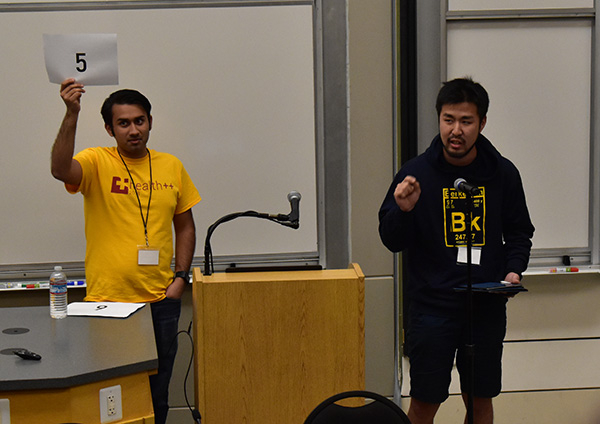
Fujita during his pitch presentation
Comments from Hajime Fujita
Biodesign — combining design with solutions to unmet health care needs — is currently a trending concept at Stanford University, the home of design thinking. We will continue to test our product and hope to bring it to market soon.
When I participated in the Entrepreneurship Camp at Korea Advanced Institute of Science and Technology (KAIST) last July, we also tackled product design in multinational teams — much like at the Stanford hackathon. At KAIST, however, due to a lack of leadership and varying levels of knowledge among our team members, our project fizzled out.
I tried to learn from that failure. This time, we clarified the role of each team member and carried out thorough prototyping based on the needs of potential end users. The result was a synergy that formed between the diverse members of the team. The environment in the United States, and particularly Stanford University, can provide this kind of experience, and I sincerely hope that Tokyo Tech students continue to participate in this competition in the future.
Fujita, while carrying out research in the field of biology, has also been studying sociology under Associate Professor Ryosuke Nishida. Fujita feels that the interdisciplinary approach he has adopted contributed to his success at the hackathon.
- BEETLE
- Stanford's Health Hackathon health++ 2018
- Department of Life Science and Technology, School of Life Science and Technology
School of Life Science and Technology
—Unravel the Complex and Diverse Phenomena of Life—
Information on School of Life Science and Technology inaugurated in April 2016

